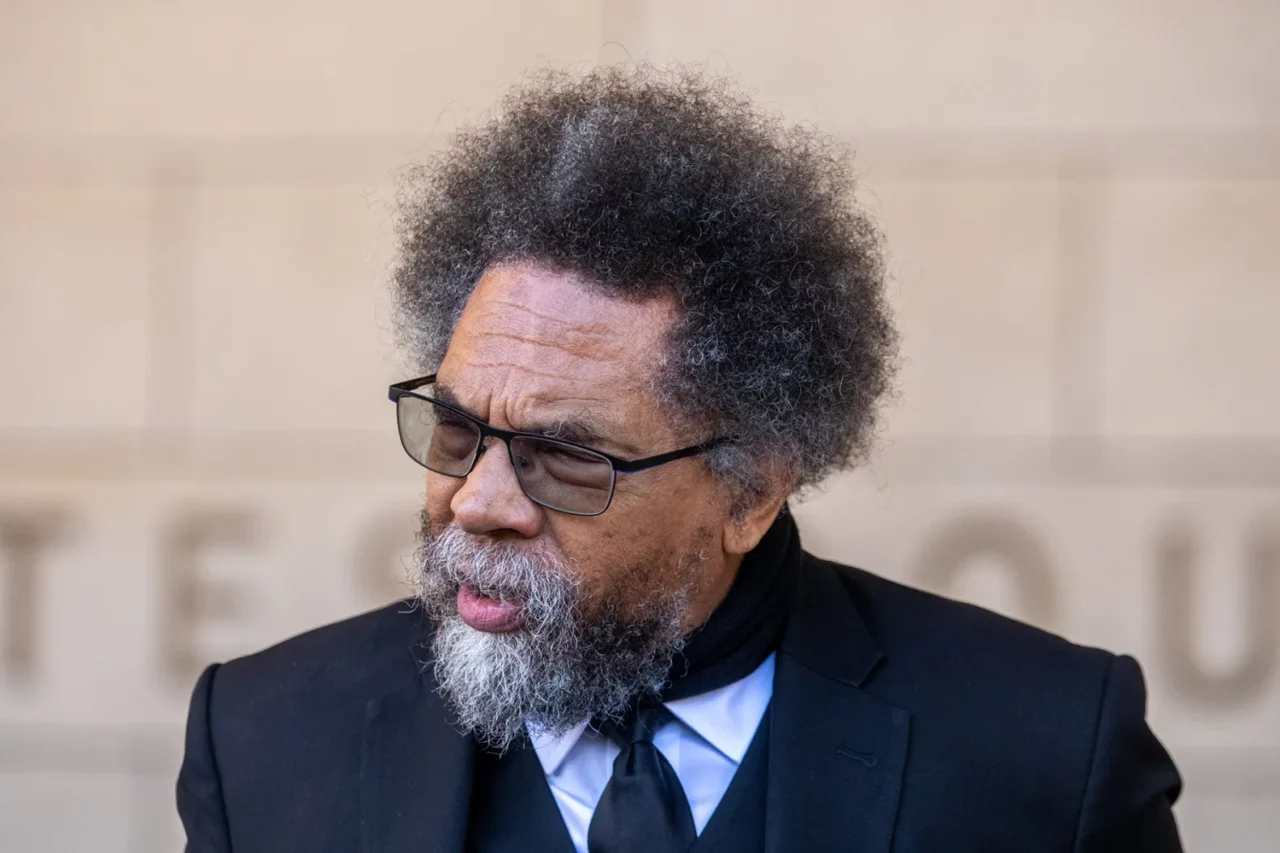Class struggle (conflict of interests between the ruling class and workers in a capitalist society) has its origins rooted in the days of chattel slavery—when Blacks were considered as legal property in the United States—and thus, utterly subjugated. During this long-stretched period (approximately 246 years) of severe hardship, Blacks were debased, racially sidelined, and greatly exploited. As part of an economic strategy to enrich Whites, several millions of Blacks were forced to work for slaveholders who owned various means of production such as cotton fields, tobacco plantations, etc. As time progressed, Blacks became hugely instrumental to building the economic foundations of the new nation. Blacks’ struggle for socioeconomic and political liberation contributed to the bloody American civil war, which happened following the invention of the cotton gin in 1793 that consequently provoked a heated debate about the importance of slavery to the economy of the United States. Although the Union victory freed several millions of black slaves, the consequences of class struggle emanating from slavery continue to influence and shape American history. From the tumultuous years of Reconstruction to the civil rights movement of the 1960s, and till this day—the issue of class struggle, racism, and the subjugation of Blacks—remain in the centerstage of public discourse.
The issue of class struggle is one which German philosopher and sociologist Karl Marx espoused for several decades. The idea of class struggle stems from Marx’s theory on capitalism: an economic system with two major classes, namely the bourgeoisie and the proletariat. The bourgeoisie, Marx claims, are the capitalist class who owns the means of production and employs labor. In other words, this class of people own things that are necessary to produce material goods (ex: land, natural resources, etc.) or tools/machines used in production. The proletariat, however, are the poor working class/laborers who have no means of production of their own. Marx viewed this structure of antagonizing classes as an engine of change that would only put the proletariat in a disadvantaged position. Today, such unfavorable change is evident in the lives of Blacks (i.e., the modern proletariat or poor working class) in ways of job discrimination and inequality of wage, broken families, limited educational opportunities, a disproportionate presence in the prison population, and widespread police brutality.
African American activist, author, and university professor Cornel West has, over many decades, given credence and voice to Marx’s perspective on class struggle, exploring issues such as racial marginalization and oppression, poverty, and spirituality, especially as it relates to African Americans.
In this essay, I intend to explore Karl Marx and Cornel West’s perspectives on class struggle and racism vis-à-vis blacks. First, I will highlight what class struggle and racism means for Marx and West and subsequently demonstrate the infiltration of class struggle and racism in the United States. Finally, I will show some of the manifestations of racism in the lives of Blacks in present-day America.
Marx’s class theory hinges on the premise that “the history of all hitherto existing society is the history of class struggles” (Pittman, J. P. 2002). What Marx means is that because human society emerged from a primitive and rather homogenous state, it is fundamentally divided between classes. Marx posits that this inherent division results in a pursuit of class interests. He argues that the capitalist system breeds antagonism between classes. And usually, this antagonistic struggle or conflict is between the “exploiter and the exploited” (Laski, H. 1999). Today, one might argue that this class struggle is akin to the one between buyers and sellers of labor power (i.e., Walmart, McDonalds, Microsoft, eBay, and so on versus their employees), and even with those who are in position of authority/influence such as mayors, celebrities, etc.
In addition, Marx maintains that this kind of dominance or exploitation of those below (the proletariat or poor working class) can be stopped if the working class overthrow the ruling class (i.e., the proletariat becoming the bourgeoisie). Marx contends that workers can improve their socioeconomic situation by “forming unions and other organizations” (Pittman, J.P. 2002). According to Marx, the more workers disunite, the more they grow weaker to challenge their “exploiter.” This insight lends itself to Marx’s view on racism where he frowns on the efforts made by capitalists to separate black and white workers. The notion is that, as far as White workers identify primarily as Whites rather than the “working class,” they will not act in their common class interests with black workers. And as Pittman, J.P. (2002) suggests, “…to end racial oppression and [class struggles],” there need to be a “united working class.”
In terms of West’s view on class struggle and racism, the sixty-three-year-old intellectual argues that the main barrier to harmonious race relations in the United States is “nihilism”—the belief that all values are baseless. According to West, nihilism is the sense of worthlessness that exists among most blacks. West writes, “Nihilism is to be understood here not as a philosophic doctrine that there are no rational grounds for legitimate standards or authority; it is, far more, the lived experience of coping with a life of horrifying meaninglessness, hopelessness, and (most important) lovelessness” (West, 1994). Although West contends that the “bottom” experience of Blacks in the formidable proletariat class is as a result of Black “nihilism,” he also shifts some blame to Black leadership. West laments “…there has not been a time in the history of Black people in this country…when the quantity of politicians and intellectuals was so great, yet the quality of both groups has been so low.” West continues, “…just when one would have guessed that Black America was flexing its political and intellectual muscles, rigor mortis seems to have set in” (Johnson, D. R. 2013). West seems to suggest here that these days, Black leaders and Blacks in position of authority, are not pulling their weight as far as strengthening Blacks in their class struggle and decade-long strife for socioeconomic and political advancement. He also argues that Black leaders today are not like Frederick Douglass, Martin Luther King, Jr., Malcolm X, and Fannie Lou Hamer, W.E.B Dubois, and so many others, who are renowned for their dogged determination and resilience in upholding and guiding Black folks in the right direction.
Although West praised Malcolm X, Matsueda, R. & Drakulich, K. (2009) argue that West “questions the assumption made by many followers of Malcolm X that black nationalisms have a monopoly on black self-love and black self-determination…he observes that the obsession many black nationalists have with white supremacy actually allows white people to continue to serve as the principle point of reference.” West also argues that “while [his] analysis concentrates on people of African descent, particularly Afro-Americans, it also has important implications for analyzing the racism that plagues other peoples of color” (West, 1994).
Arguably, racism—alongside class struggle—became America’s reality because of capitalism. Kendall, Hunt & Dubuque (1999) argues that “Racism in the United States is defined as the systematic oppression of African-Americans and other people of color and the related ideology of white supremacy and black inferiority.” Kendall, Hunt & Dubuque (1999) also contend that “…these two aspects of racism have shaped U.S. society from the early 1600’s until the present.” This stance goes back to Marx’s theory of class conflicts (which stems from a capitalist economic system) where one class (bourgeoisie) struggle for economic and political power to keep the other class (proletariat) underneath them.
Thus, it might be fitting to argue that the United States inherited racism from capitalist Europeans. Kendall, Hunt, & Dubuque (1999) posit that “the origins of racism in the United States are directly traced to the European conquest of the Americas, to a rapidly expanding capitalism in Western Europe and the British colonies that were to become the United States, seeking cheap and growing supplies of food, beverages, tobacco, and increasingly, cotton.” Kendall, Hunt, & Dubuque (1999) assert that “…the slave trade created much of the wealth subsequently invested in textile, shipbuilding and other emerging capitalist enterprises in the Northeast United States and Europe.” In other words, racism thrived in America because a few capitalist-oriented European countries saw Blacks as huge economic jackpots and burgeoned their sizzling romance with racism.
Lee (2011) contends that “under capitalism, the inhumane process of acquiring slaves came to resemble that of acquiring raw materials and livestock as free people were dehumanized and commoditized.” The capitalist economic system and its full-blown dividend (i.e., class struggle, racism, and economic prosperity of whites) has continued to grow in leaps and bounds in the United States and have manifested itself in many polarized and partial ways that is self-serving to Whites. While Marx’s capitalist theory remains valid, West’s argument about the failure of Black leadership still hold water with regards to the conversation on the thrive of racism. West contends that Black people “…need serious strategic and tactical thinking about how to create new models of leadership and forge the kind of persons to actualize [those] models” (West 1994).
Irrespective of the efforts made by Blacks to rise above the confines of class barriers in the United States, the century-long oppression against them, in form of racism, continue to manifest in many ways: job discrimination and inequality of wage, broken families, limited educational opportunities, a disproportionate presence in the prison population and widespread police brutality.
In terms of job discrimination and inequality in wage, Peter Bohmer argues in his work, Marxist Theory of Racism and Racial Inequality, that racism in America has permitted “…employers to pay lower wages to black than to white employees. This stance is buttressed by the assertion that capitalism thrived and birthed a system where racism was the only rapid route to economic prosperity for Whites. The difference between the wages of Blacks and Whites measures the super exploitation of black workers and the super profits of capital (Bohmer, 1998). In other words, employers, in a class of their own, gain and maximize their profits simply by indulging in racism and racial inequality. Marianne & Mullainathan (2002), in their research study titled Discrimination in the Job Market in the United States, argue that racial inequality is pervasive in the United States labor market. The study shows that “compared to Whites, African Americans are twice as likely to be unemployed, and earn nearly 25 percent less when they are employed” (Marianne & Mullainathan 2002). A few labor and race relations experts have also submitted that some of the reasons why Blacks are discriminated is not only because of their encounter with racial bias, but because Black communities have weaker job networks in place. This notion tends to echo West’s position on Black leadership and their failure to chart the course for other Blacks.
When interviewed on CBS News’ 60 Minutes about the current state of things with Blacks in America, West adopts a moralistic approach in his response: “It’s never a question of skin pigmentation. It’s never a question of just culture or sexual orientation or civilization. It’s what kind of human being you’re going to choose to be from your mama’s womb to the tomb and what kind of legacy will you leave.” Although West’s prominence in issues pertaining to Black subjugation is widespread, Zavarzadeh, in his work, Spiritualizing Race: Sketches on the Values Politics of Cornel West, argues that “West’s writings are all re-writings of this conservative logic in a radical and prophetic rhetoric that represents issues as too complicated to be amenable to any solution.” Similarly, Marx has also been critiqued for his predictions in the Communist Manifesto about the dangers of capitalism and globalization. Marx promoted the overthrow of the bourgeoisie by the proletariat, which he believes, will lead to socialism. This same idea of socialism is part of West’s modern-day model, as he continues to seek out ways to empower Black people.
The impact of racism on black families cannot be overemphasized. Racism began in the days of slavery, when enslaved blacks were denied family life because they were the slaveholder’s property and could not legally marry. Today, racism has impacted many Black families through single parenthood, teen pregnancy, nonmarital births, etc.
Yancy, G. (1995) claims that the “African American family unit [suffers] from institutionalized racism.” In other words, there is a structure in place (supposed bourgeoisie) that ensures that Black families are not only marginalized, but dysfunctional. This kind of racism is also evident in the limited educational opportunities available to Blacks versus Whites. One of West’s influencers is seasoned sociologist and civil rights activist W.E.B Dubois, who, among other things, advocated for the education of Blacks. But it appears as if, as the years go by, that racism continues to dim Dubois’ purported vision for Blacks with regards to quality education. A report by the Urban Institute shows that “only 4 percent of Blacks aged 25 or older in 1962 had a college degree, while 10 percent of Whites did.” The report also reveals that “In 2012, 21 percent of Blacks had a college degree and 31 percent of Whites did, meaning the gap grew from 6 percentage points to 10 percentage points.”
Another plaguing issue that also stems from racism is the disproportionate presence in the prison population and widespread police brutality against Blacks. Acs et al. (2013) argues that “…the United States’ approach to crime has disproportionately affected Black communities and… may have done more harm than good.” Kahn & Kirk (2015) buttress this stance, as they contend that “Black Americans are more likely to have their cars searched, arrested for drug use, jailed while awaiting trial, offered a plea deal that includes prison times, disenfranchised because of a felony conviction, and have their probation revoked.” The same report reveals that “… Black male federal defendants were given longer sentences than comparable whites. Black men’s sentences were, on average, 10 percent longer than those of their White peers.”
In terms of the menacing issue of police brutality, research reveals that “police arrest Black Americans for drug crimes at twice the rate of Whites…even though Whites use drugs at comparable rates and sell drugs at comparable or even higher rates” (Kahn & Kirk 2015). These chilling effects of racism, which is a consequence of class struggle, is what West has fought unflinchingly in the last couple of decades. West has made appearances on several media platforms, protested police brutality, written several articles and books, as well as remained a frontrunner in the Black Lives Matter movement. Perhaps the assertion that Marx made about the overthrow of the bourgeoisie by the proletariat is what we see today through the supposed “woke” state of Blacks.
In conclusion, Black oppression, as we know today, arguably began because of the capitalist economic system that the United States inherited from Europeans. The oppression or subjugation of Blacks by Whites takes the form of racism and have manifested in numerous ways such as job discrimination and inequality of wage, broken family system, limited educational opportunities, a disproportionate presence in the prison population, and widespread police brutality. Although Marx predicted the adverse effects of capitalism (i.e., the class struggle because of a bourgeoisie- proletariat structure and the uneven distribution of wealth and income, among others) through his homiletic writing—the Communist Manifesto, the idea of globalization, which Marx seemed to negate, appears to have given way to a seemingly prosperous era of free trade and free enterprise. Today, the economic benefits of globalization, which links the most remote corners of the continents in lucrative bonds of finance, have offered all and sundry a relatively equal opportunity to play on the international stage of enrichment. However, with the global economic downturn, and workers across the globe fuzzing about employment, stagnant income, debts, especially those of color, Marx’s critique of capitalism—that the system is inherently unfair and detrimental—cannot be so easily jettisoned. Although West agrees with Marx about the implications of capitalism, he does not necessary think that capitalism (economics) is a major problem. Rather West believes that the problem is the heartless corporations that distort capitalism by their greedy meanderings (values). As Zavarzadeh puts it, “For West, the real danger is that one might fall into dogmatic rigidity and make “fetish of the public square.”’ In other words, there might be a blatant resistance to positive change, leading to trivialization.


